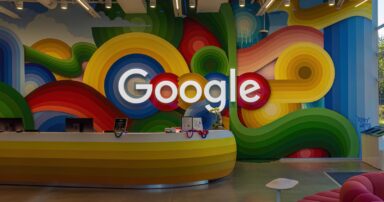Google Brings Ads to AI-Powered Search Experience
Google has announced the integration of ads into its AI Mode in Google Search. This new feature will display relevant Search and Shopping ads within AI-generated responses, both on desktop and mobile devices in the U.S. The move is currently in a testing phase.
Google explains that ads will appear where they align with user queries. For example, if a user is researching how to start a website, an ad for a website builder might be displayed. This allows users to seamlessly explore related services and tools.
User Concerns and Industry Trends
While ads are Google's primary revenue source, this change may not be welcomed by all users. Recent polls suggest a significant portion of U.S. adults are wary of AI-driven advertising. This raises concerns about potential negative impacts on user experience and brand perception.
Google's move follows a trend in the AI industry. Competitors like Perplexity and Microsoft have also explored or implemented advertising within their AI products. Even OpenAI has hinted at the possibility of an ad-supported model in the future.
Ad Eligibility and Expansion
Advertisers already using Google's Performance Max, Shopping, and Search campaigns with "broad match" will be eligible to have their ads appear in AI Mode. Initially, the focus is on Search and Shopping ads, but this could expand to other ad formats in the future.
This expansion of ads also extends to Google's AI Overviews feature, which provides summarized answers to search queries. Search and Shopping ads will soon appear in AI Overviews on desktop in the U.S., followed by an expansion to other countries and mobile devices.
Google emphasizes that ads in AI Overviews are clearly labeled as "Sponsored" and are only displayed when relevant to both the query and the generated response. The company claims to be considering publisher concerns regarding potential impacts on their ad revenue.
This development marks a significant shift in Google's approach to monetizing its AI-powered search features. The long-term impact on user experience and the advertising landscape remains to be seen.








